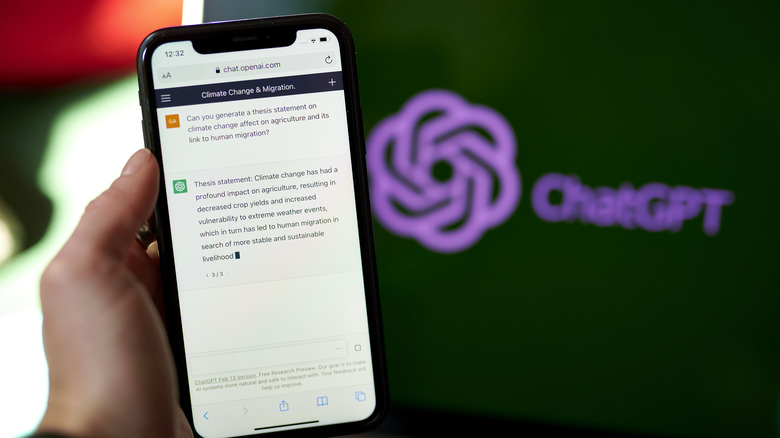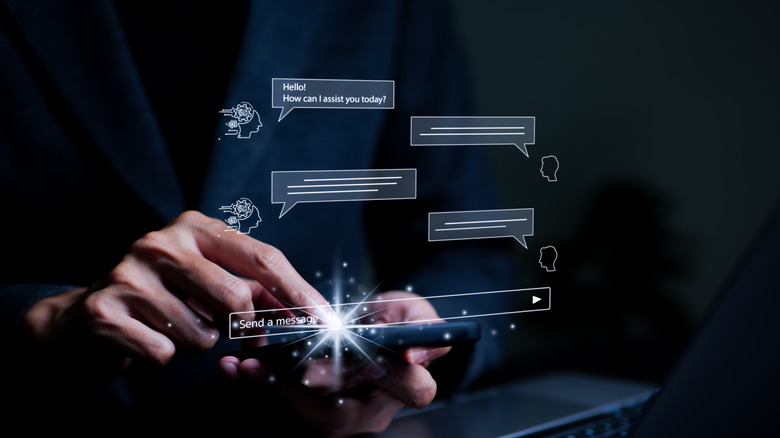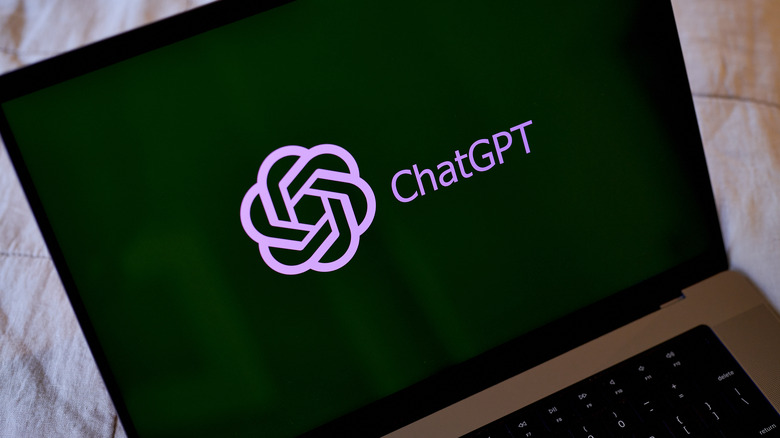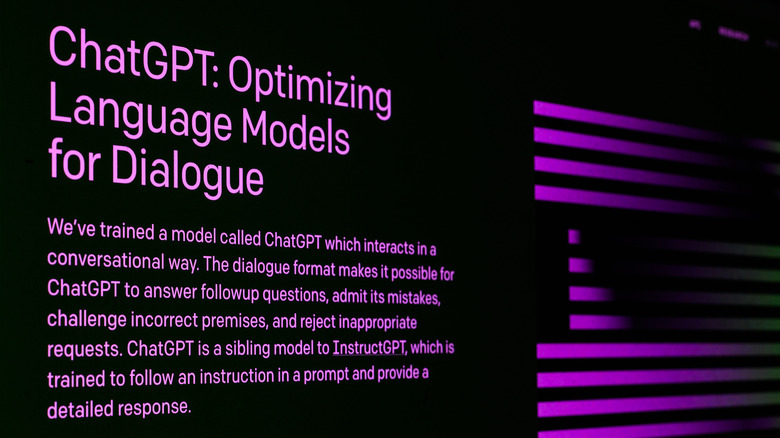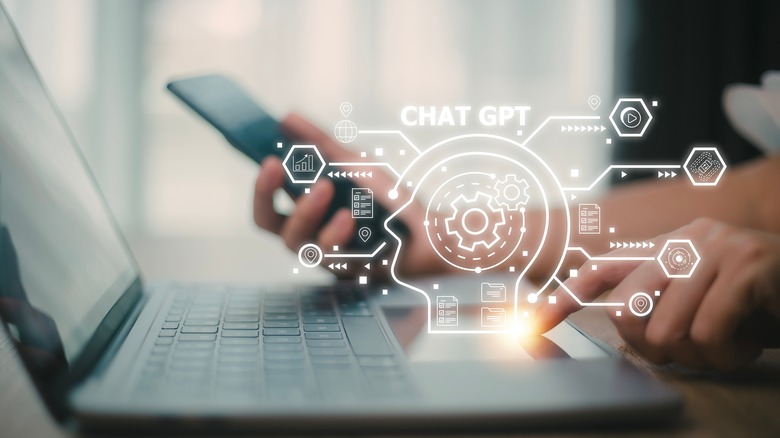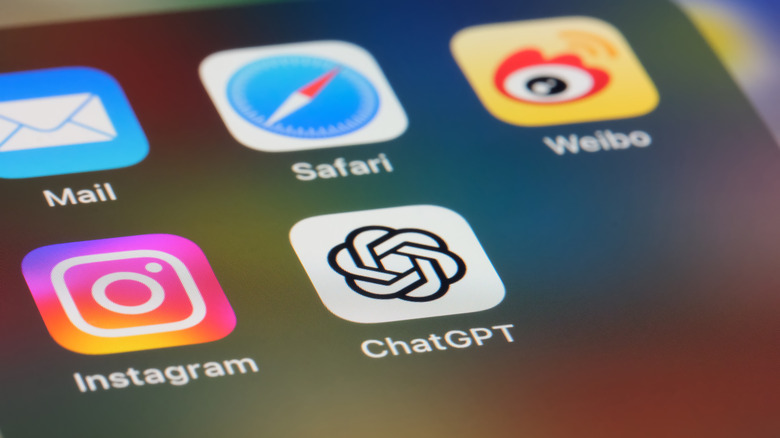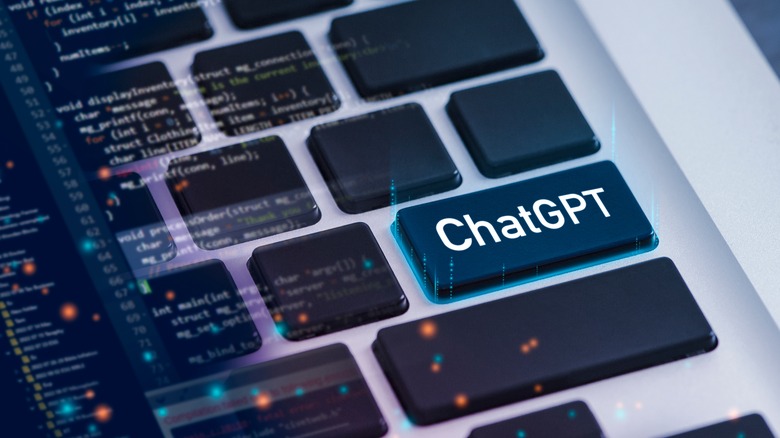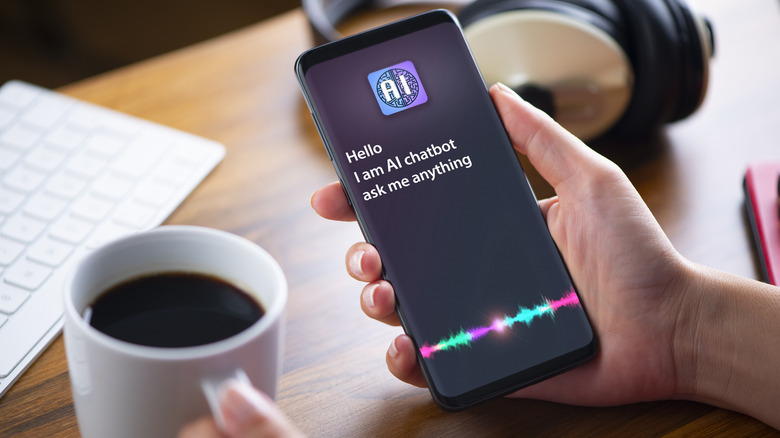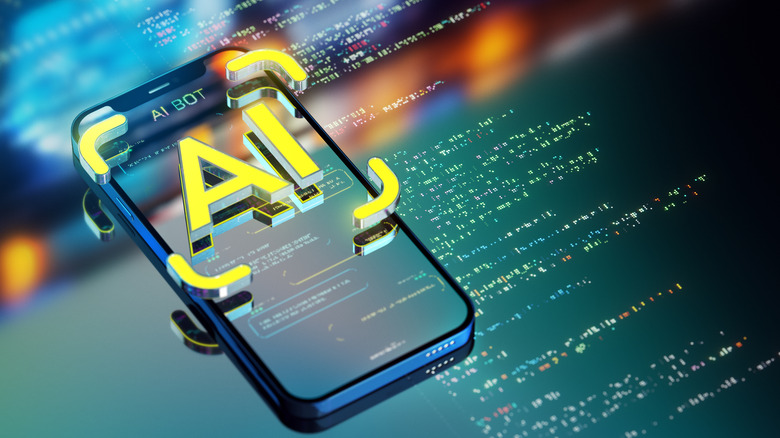5 Reasons You Should Upgrade To ChatGPT Plus (And 5 Reasons You Shouldn't)
In the realm of artificial intelligence and language models, ChatGPT has emerged as a game-changer. Since its public launch in November 2022, ChatGPT has revolutionized the way we interact with artificial intelligence. With an incredible influx of around 10 million daily queries, this breakthrough language model has quickly become an indispensable tool in our everyday lives. While its free version remains accessible in most countries, OpenAI has also introduced an upgraded option available for purchase.
Meet ChatGPT Plus, an enhanced subscription plan featuring improved capabilities tailored to elevate your experience with this AI-powered marvel. By subscribing to Plus, you gain access to a range of benefits and features that promise to surpass the current model. However, there are also considerations to keep in mind, such as the cost and the extent of improvements over the free version. With any software available at no cost, the question arises — is it worth upgrading?
Whether you're a developer, IT professional, or simply curious about AI, there's a lot to unpack with ChatGPT Plus. To help you make an informed decision, here are the top five reasons why you should consider upgrading to ChatGPT Plus — as well as five reasons why you might want to hold off on the upgrade.
Upgrade for on-demand access
ChatGPT has become incredibly popular, reaching upwards of 1.8 billion users. People turn to ChatGPT for a wide range of purposes, from seeking homework assistance and brainstorming ideas to simply engaging in conversations with a chatbot. However, the massive influx of users can strain the servers and overwhelm the system. This is where ChatGPT Plus steps in, offering a solution that goes beyond the limitations of the free version.
The high demand for ChatGPT often surpasses its capacity to handle all requests simultaneously. Without upgrading to ChatGPT Plus, you may find yourself waiting in line for your turn to interact with the chatbot. This restriction can be particularly frustrating when dealing with time-sensitive tasks or urgent inquiries.
By opting for the ChatGPT Plus upgrade, users gain a significant advantage: priority treatment and guaranteed availability. ChatGPT Plus users enjoy uninterrupted access to the AI-powered chatbot, bypassing the queues and ensuring an on-demand experience whenever they need it — even during peak hours. With ChatGPT Plus, you can skip the waiting game and enjoy uninterrupted interactions with the chatbot whenever you need its assistance.
Upgrade for faster response times
Upgrading to ChatGPT Plus offers a significant advantage in terms of faster response times from the language model, delivering an improved user experience. With reduced latency, users can engage in more dynamic conversations, enhancing the overall quality of interactions. This speed boost not only makes conversations more pleasant but also saves valuable time, particularly in time-sensitive scenarios where prompt responses are crucial.
While the upgraded version undoubtedly enhances response times, it's important to note that occasional latency issues may still occur, resulting in slight delays in receiving replies. OpenAI acknowledges that real-time conversation capabilities may not be fully met by ChatGPT Plus, considering the complexities involved in natural language processing and the inherent challenges of instant and unbroken communication.
It's worth mentioning that OpenAI is continually working on refining its GPT AI models, striving to enhance its capabilities and address any performance gaps. By subscribing to ChatGPT Plus, users gain priority access to OpenAI's infrastructure, enabling faster and more efficient interactions. This includes not only faster server response times but also accelerated processing for the AI, resulting in even speedier query handling compared to the free version.
Upgrade for the newest version GPT-4
One of the best reasons to upgrade to Plus is to gain access to the GPT-4 model. More specifically, Plus gives users access to the GPT-4 waiting list that's only available if they purchase the subscription. Software updates are often generic improvements that enhance efficiency or update underlying code. Sometimes it's not even noticeable unless you dive into the backend. This is absolutely not the case with the GPT-4 model.
ChatGPT Plus users are also the first in line when it comes to updates and new features. OpenAI is always making improvements to its AI model, and Plus users have priority access to all of them. Plus users were one of the first to test drive ChatGPT's online integration that was recently released, while free users will have to wait until this feature is made publicly available.
If you want to be on the cutting edge of GPT technology, then upgrading to Plus is the easiest way to be able to test the newest features first.
Upgrade for online access and plugins
ChatGPT is consistently coming up with new features and functions. If you've been on the free version of ChatGPT you'll eventually run into the limit of its knowledge with a response that reads, "I apologize, but as an AI language model, I do not have real-time data or access to current news events. My training only goes up until September 2021". This is no longer the case.
In March of 2023, OpenAI released plugin features for ChatGPT. This gave third-party companies the option to integrate ChatGPT's speech model into their app or plugin. So far, only a few companies have been given the green light to test this, but it's an impressive list already. Websites like Kayak, OpenTable, Expedia, and Speak have already created plugins for the GPT.
Kayak and Expedia can respond to texts and help users find flights and vacation plans while talking to customers. OpenTable can receive input on what a user is craving for dinner and give restaurant recommendations. Speak has one of the more interesting uses for GPT by taking on the role of an AI language tutor.
GPT-4 is also beta testing its own web browser integration. It can now search online read results and filter that information back to the user, and can even give the sources that it looked at. This is a huge step in functionality for AI and is only available to Plus subscribers and those who have access to GPT-4.
Upgrade for a relatively cheap solution
In the quest for the futuristic robotic assistant that you've been waiting for since "The Jetsons," ChatGPT Plus is a powerful tool that can handle a surprising amount of work. While it may not be capable of everything, its abilities are impressive.
When considering the workload that ChatGPT Plus can alleviate, the monthly subscription cost of $20 is relatively cheap. Comparatively, the average cost of hiring a virtual assistant ranges from $10 to $20 per hour. The cumulative expenses can quickly mount and strain monthly budgets, especially for individuals or small businesses. In contrast, the cost-to-value ratio for those that use or rely on ChatGPT Plus in any capacity for their business is well worth the price.
It's important to note that alternative options in the market often come with significantly higher price tags. For instance, Jasper AI will run you around $49 per month, Bloom starts at $99 per month, and IBM's Watson Assistant Plus costs $140 per month.
ChatGPT offers a compelling and cost-effective solution, particularly for small businesses and individuals seeking virtual or in-person assistance but facing financial constraints. The affordability of ChatGPT Plus opens doors to invaluable support and enhanced productivity that might otherwise be out of reach.
Don't upgrade if GPT-3.5's free services are already enough
Let's talk about the elephant in the room: the cost. It's true that ChatGPT is a remarkably versatile tool, capable of handling a wide range of tasks like code writing, debugging, planning, virtual assistance, creative writing, and casual conversation. As humanity edges closer to embracing AI companions, ChatGPT stands as a valuable software with immense potential.
ChatGPT is undoubtedly the first step for our AI overlords, but until they take over, it still has a long way to go. As a free tool, it can do a lot, and an upgrade may simply be unnecessary to justify the cost. The free version of ChatGPT is excellent. If the features in the free version are adequate, then there's really no reason to spend $20 per month on something you won't use.
It's also worth exploring the free options available in the market. Companies like Microsoft and Google offer their own AI-powered language models, such as Bing and Bard, respectively. While they may have limitations or different feature sets compared to ChatGPT, they can serve as viable alternatives for those seeking cost-effective solutions.
While ChatGPT Plus offers a range of enticing perks, it's crucial to judge whether the upgraded experience justifies the subscription price. For users who only use the language model occasionally or for casual conversations, the free version might be enough to scratch that itch without burning a hole in their pocket. After all, with an extra $20 a month, you can afford to buy avocado toast and lattes.
Don't upgrade because of use-case limitations
While ChatGPT is a powerful language model, it may not be the ultimate solution for all scenarios. Complex tasks requiring domain-specific knowledge might not be its forte, and if you're knee-deep in technical queries, you might find that ChatGPT's responses lack the precision you want. In such cases, exploring specialized chatbots or expert systems tailored to your specific needs might be a smarter move.
Although ChatGPT is impressive, it's important to note that it is not always 100% accurate and that it still has some big flaws. It can sometimes produce responses that are objectively incorrect or biased, a phenomenon known as hallucination. This can be frustrating and, when used in a business context, potentially embarrassing or even dangerous if incorrect information is relied upon.
Although ChatGPT can now connect to the internet, its ability to access it is still in beta, so it's not as seamless as you'd think. It can sometimes take longer to ask ChatGPT than to simply search Google yourself. Users are also limited by the number of searches they are allowed with ChatGPT. Additionally, ChatGPT lacks certain integrations, such as voice commands, visual or artistic generation, and connections to popular platforms like Gmail, Twitter, or other social media platforms. While future updates may address these limitations, they are absent in the current version.
Don't upgrade for non-critical use
It's easy to get swept up in the hype of AI innovations. It's a budding technology that will undoubtedly change the world around us. Each new innovation in the tech world is exciting and has the potential to change life as we know it. However, it's also important to take a step back and evaluate before diving headlong into it.
The first question to ask is — what will you be using ChatGPT for? If it is merely for exploration, experimentation, or pure curiosity, rest assured that you can do so without paying for Plus. The free version of ChatGPT is a great sandbox to let users familiarize themselves with the system and gain a solid understanding of how it works. Once you have a grasp of stringing together queries and receiving responses, you can make an informed decision about whether round-the-clock access to GPT services is right for you.
For non-critical applications, the free version is often sufficient. Evaluate the urgency and time sensitivity of your interactions with ChatGPT to make your decision. If you don't need to use GPT immediately or if it's doing a good job giving you answers, there's really no reason to upgrade. Take a step back and make an informed choice based on the nature of your queries and the value you place on immediate responses.
Don't upgrade because of privacy concerns
Privacy concerns are the real-life supervillains plaguing the tech realm. While OpenAI has taken steps to address these concerns, it's always good to consider the implications of sharing your conversations with a language model. If you're a privacy-conscious techie, you'll want to dive into OpenAI's privacy policy and terms of service with the scrutiny of a seasoned hacker to ensure they align with your personal standards.
If you're unfamiliar with how AI models work, now is the time to learn while they're still relatively new. AI models are trained on mountains of publicly available data. Since it's a budding technology, the legality of all of this is still in a gray area where laws and regulations haven't caught up. A good example is Stability AI's Stable Diffusion, which generates new images but was trained using copyrighted materials. Lawsuits have already been filed and the dust has yet to settle on the outcome.
While privacy concerns may not be the sole reason to forgo the upgrade, they do raise valid points about the use of AI models in general. As a private company, OpenAI requires extensive data to train its models, and by subscribing to ChatGPT Plus, you are essentially providing them with at least some of your data — not to mention any information you plug into ChatGPT.
Don't upgrade without exploring alternatives
Just like there's more than one flavor of Linux, there are many AI language models out there to choose from. Before committing to ChatGPT Plus, explore all of the options in the market. ChatGPT is currently the most popular and one of the most advanced AI chatbots on the market, but if you know about internet history, you'll know just how quickly that can change. Just ask Yahoo or Netscape.
There are quite a few ChatGPT alternatives. Each is trying to carve out a piece of this new market and each will undoubtedly specialize or excel at various tasks as time and development continue. A pseudo-alternative to ChatGPT Plus is Bing's Chat AI function. It's powered by GPT-4 but not quite as user-friendly as the version on OpenAI's website.
For those seeking feature-rich alternatives, ChatSonic is worth exploring. Powered by GPT-4, ChatSonic offers deep integration with various social media and productivity platforms such as Slack, Facebook, and WhatsApp. This provides a distinct benefit for users seeking a comprehensive AI chatbot experience. By delving into the world of alternative options, you open yourself up to the possibility of discovering AI language models that better align with your specific requirements, whether in terms of functionality, integration, or accessibility.
